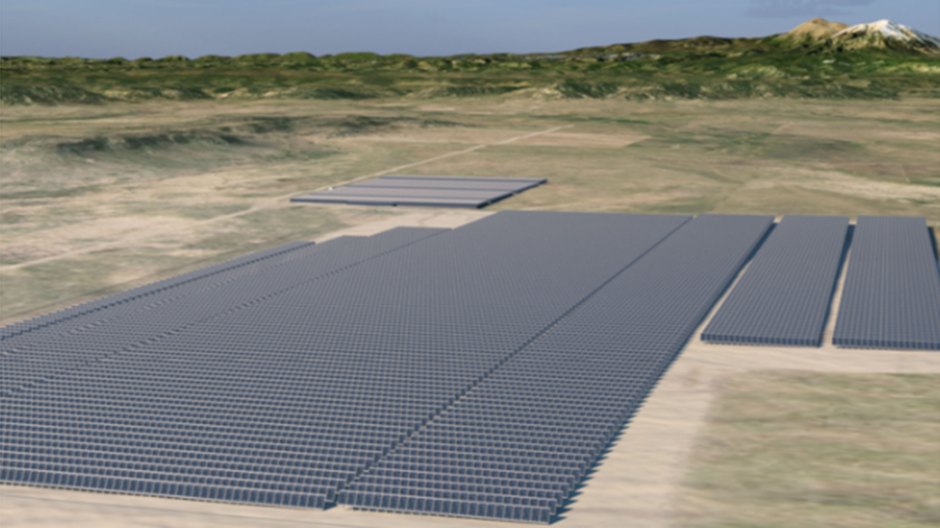
Tri-State Generation and Transmission Association is more than doubling the power it will get from solar energy with a new 100-megawatt installation about 20 miles north of Trinidad.
Tri-State said Friday that it is teaming up with Boulder-based juwi Inc. on the 660-acre project, which will install more than 300,000 photovoltaic solar panels on single-axis tracking arrays that follow the sun. The energy wholesaler will buy the entire output of the project over the 15-year contract.
The Spanish Peaks Solar Project will serve about 28,000 rural homes and support 150 jobs during construction, which will start in 2022. The project is expected to be in service no later than 2023 and could start producing power earlier, Tri-State spokesman Lee Boughey said.
This will be the second project Tri-State has undertaken with juwi, the U.S. subsidiary of Germany-based renewable energy company juwi AG. The 30-megawatt San Isabel Solar Project in Las Animas County started generating electricity in 2016.
The new project is the wholesale power supplier’s “largest, most cost-effective solar project to date,” Tri-State CEO Mike McInnes said in a statement.
“By developing renewable projects through Tri-State, our members take advantage of an economy of scale unavailable in smaller projects,” McInnes said.
The Spanish Peaks Solar Project will be in the service territory of the San Isabel Electric Association, a Tri-State member that serves all or parts of seven counties in southern Colorado.
“This project is just another significant step forward into the future not only for San Isabel Electric’s members but for electric co-ops across Colorado and the West,” San Isabel Electric CEO Reg Rudolph said.
Westminster-based Tri-State is owned by 43 member electric cooperatives and public power districts and supplies electricity to members in New Mexico, Colorado, Nebraska and Wyoming.
Some member cooperatives and renewable energy advocates have criticized Tri-State for relying too heavily on coal at a time when the costs of wind and solar energy are falling and concerns about climate-changing emissions from fossil fuels are increasing. The Taos, N.M.-based Kit Carson Electric Cooperative paid $37 million to break its contract with Tri-State in 2016 because of rising rates and a desire to increase use of renewable energy sources.
Some member cooperatives and renewable energy advocates have criticized Tri-State for relying too heavily on coal at a time when the costs of wind and solar energy are falling and concerns about climate-changing emissions from fossil fuels are increasing. The Taos, N.M.-based Kit Carson Electric Cooperative paid $37 million to break its contract with Tri-State in 2016 because of rising rates and a desire to increase use of renewable energy sources.
The Delta-Montrose Electric Association, based in Montrose, wants to buy out its contract with Tri-State, saying its rates have increased 56 percent since 2005. A complaint the cooperative filed to ask the Colorado Public Utilities Commission to intervene says it wants to develop more local, cost-effective renewable energy resources but Tri-State hasn’t been receptive.
However, Tri-State said Friday that nearly a third of the energy used within its association comes from renewable energy sources. Boughey said that amount is expected to increase as Tri-State adds more renewable sources and retires two coal-generating units, one by the end of 2022 and another by the end of 2025.
In addition to the Spanish Peaks and San Isabel solar projects, Tri-State also purchases the full output of the 30-megawatt Cimarron and 25-megawatt Alta Luna solar projects in New Mexico.
From its start, the not-for-profit Tri-State has used federal hydropower and since 2008 has added more than 475 megawatts of utility-scale wind, solar and other renewable projects, the company said.
